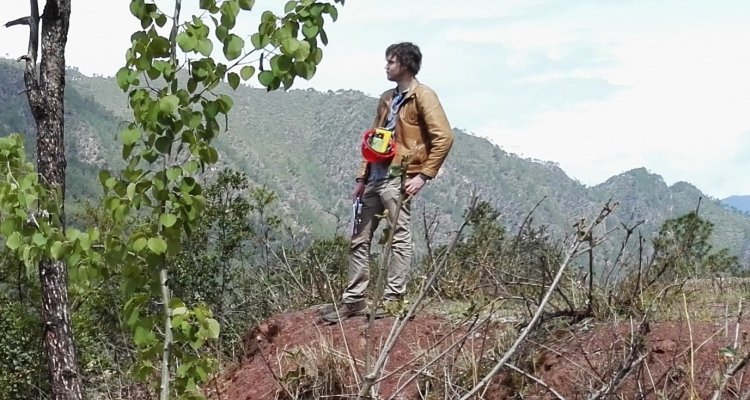
Alumnus testimonial
Alumnus Michiel Voermans - Geo- Information Science
After completing the bachelor in International Land and Water Management in Wageningen, Michiel went for the master in Geo-Information Sciences (GIS). He now works as a data and GIS officer at a Scottish regional NGO in freshwater conservation.
My internship allowed me to combine my knowledge from my bachelor and my skills taught over the master, which is exactly what I wanted.
Because I chose to follow the WUR GIS minor in my bachelor studies, I knew I wanted to do more with GIS in the future. This made me contemplate whether I had best choose the master in land and water management and include GIS courses in it or go for the GIS master and include land and water management related courses in it. In retrospect, I am very glad I chose the latter as it offered me insights and opportunities I would not have faced otherwise!
Courses
With having some of the courses of the master program already covered during my bachelor studies, I had a lot of freedom to choose courses like Inventory Techniques for Geosciences, Erosion Processes and Modelling, The 4th Dimension in Earth Sciences and Land Degradation & Development. Not only did I really enjoy these courses, they offered great opportunities for me to apply and strengthen some of the skills and insights that I was taught in the remaining courses of the GIS master program. Elements from for example geoscripting, spatial modelling and statistics and geo-tools proved particularly useful in other working fields to me, not only during courses but also for my thesis, internship and future career.
Thesis
The Geo-Information Science major thesis research allows a very wide range of topics and it is even possible to complete it at another WUR chair group, an external institute or a company. That is why I was able to follow in the footsteps of my bachelor thesis and wrote a thesis proposal on my own topic on remote landslide inventorisation rather than on one of the premade ones. Although I officially wrote it with the GIS chair group, I worked closely together with staff from the Soil Geography and Landscape Group, Kansas State University and the Research Institute for Geo-Hydrological Protection of the Italian National Research Council. My dyslexia made the writing aspects rather difficult and made my thesis period last a lot longer than I had hoped, which is why I often wondered whether I would have been better off with a premade thesis topic. However, looking back I believe overcoming these struggles taught me many lessons and made me better at writing in English, which turned out to be important for my future career.
Internship
As I experienced how valuable doing an international internship is during my bachelor studies, I was determined to do so again in my master. Thankfully, the staff at the GIS chair group were very helpful and cooperative. I found an internship at a Scottish regional NGO in freshwater conservation called the Forth Rivers Trust, where I did a spatial comparison analysis on riparian and aquatic habitat features of two river catchments. It allowed me to combine my knowledge from my bachelor and my skills taught over the master, which is exactly what I wanted. I had such a great time there, which is one of the reasons why I am still based in Scotland to this date.
Career
After my graduation, I found my first job nearby Edinburgh as a GIS technician in trenchless technology on sewage networks. Though not exactly my cup of tea, I was able to gain important experience in Scottish water management. What’s more, after one year they permitted me to work part-time so that on the side, I could work on a project opportunity that my previous internship organisation provided me. Doing this project resulted in me getting a job offer for a full-time role as a data and GIS officer at the organisation, where I will start “protecting freshwater habitats with maps” next month. I truly believe that thanks to the way I was able to design my master program, I will be perfect in this role and enjoy it greatly for at least the coming couple of years!